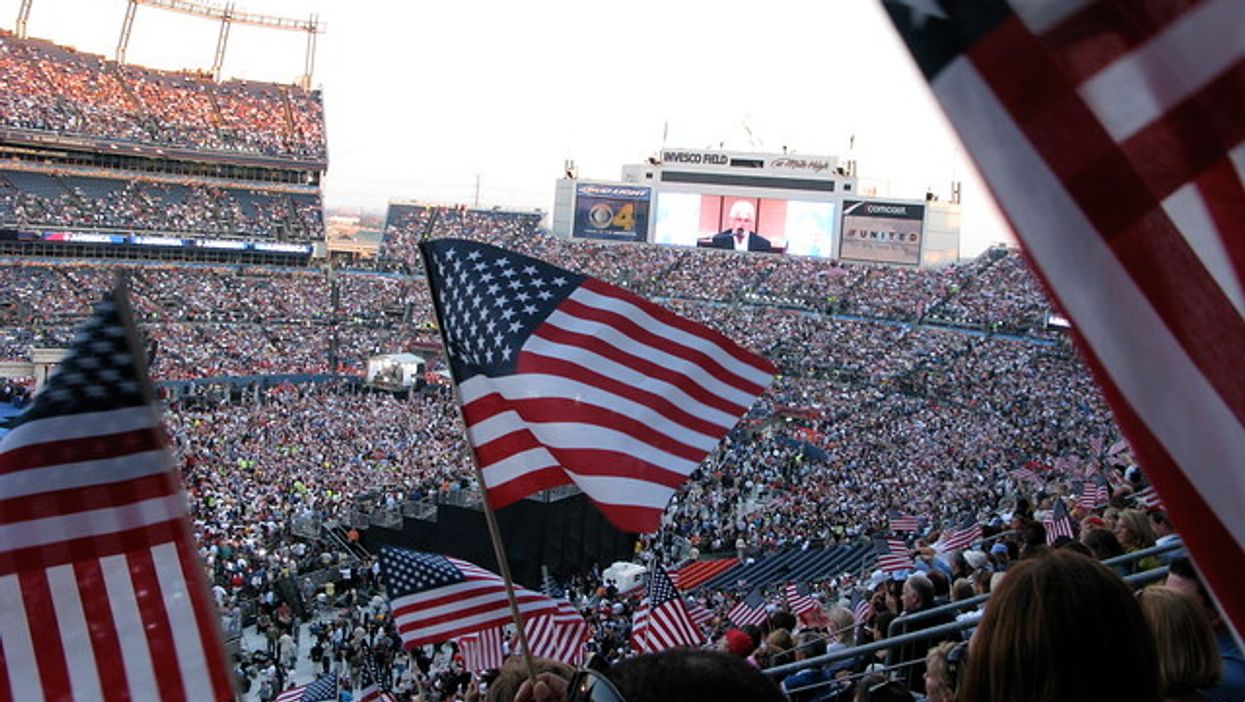
Joe Biden won't be showing up in Milwaukee for the Democratic Convention. Donald Trump may give his acceptance speech from the White House instead of before cheering delegates in Charlotte, North Carolina. Without the customary galas, this presidential campaign will be the equivalent of a birthday celebration without a cake.
Not that it really matters, because the conventions, forced to downsize by the pandemic, will barely be recognizable. Instead of crowded, boisterous affairs that lift the participants' spirits, they will be sparsely attended, dull and generally ignored.
National political conventions long ago lost the vital purpose they used to serve, which was choosing a nominee. The major broadcast networks gave up gavel-to-gavel coverage a long time ago. This campaign will prove that the two major parties can live without the bloated, time-consuming, scripted-for-TV events we used to know.
So it may seem time to retire the institution altogether. Writing on the New York Magazine site, Ed Kilgore writes, "As someone who worked in the innards of Democratic conventions from 1988 in Atlanta through 2008 in Denver, I have to say it's past time for these empty spectacles to go away."
That would be a mistake. Conventions have been around for nearly two centuries, and they have survived because they continue to serve useful, irreplaceable functions. They are mostly wasted time, but in the same sense that a typical baseball game is mostly wasted time. The moments of meaningful action still matter.
It's true that we haven't had a convention where the nomination was not a foregone conclusion since 1984, when Walter Mondale had yet to defeat Gary Hart. The last time delegates failed to decide their candidate on the first ballot was 1952, when Illinois Gov. Adlai Stevenson, after a rousing welcome speech, submitted to a draft movement and, after three rounds of voting, got the nomination.
The possibility of a contested convention in our time, however, is not far-fetched. In 2016, with a large field of GOP contenders, that possibility was widely discussed.
Earlier this year, it seemed plausible that no Democrat would secure the nomination before the party faithful gathered in Milwaukee.
In that case, the traditional convention, sidetracked by the pandemic, would be badly missed. Biden, Bernie Sanders and other candidates would have had to scrounge for votes via Zoom.
But conventions have value even when the outcome is not in doubt. They give the party a chance to spell out its policy priorities, formulate a message for the coming campaign and change the minds of voters.
These events also offer a stage for those with the capacity to inspire. Without the 2004 Democratic convention, where he gave the keynote address, Barack Obama might be just another senator today. Instead, he found a launching pad for an improbable political ascent.
In 2008, it was John McCain's running mate who seized the spotlight. After Sarah Palin wowed delegates with her acceptance speech, CNN'S Wolf Blitzer gushed, "A star is born." It was her chance to sell herself to the American people, and she made the most of it, only to be undone by her later stumbles.
Sometimes the speakers are revealing in ways that are not so helpful. In 2012, it was Clint Eastwood holding a strange conversation with an empty chair. Without these quadrennial galas, we would not have the priceless 2016 memory of Michael Flynn, who later pleaded guilty to a felony, leading chants of "lock her up."
Approving a platform is still one substantive function of the convention. This year, the Democratic platform committee took a notable stand by rejecting Sanders' "Medicare for All" proposal. In 2016, Trump's people succeeded in removing language calling for military aid to Ukraine in its war with Russia, foreshadowing his impeachment.
In recent decades, parties have gotten weaker, while political action committees and big-spending tycoons have gotten stronger. It's not a healthy change. One result has been that outsiders with little or no loyalty to the parties can compete for the nomination (Sanders) and even win (Trump).
The conventions are one of the few elements that reinforce the role of parties, bringing like-minded people together for a common purpose. For at least a few days, they also force the party to reach beyond its base and try to persuade relatively open-minded voters.
Conventions are one more casualty of the coronavirus. But maybe their absence will remind us of why they're worth keeping.
Steve Chapman blogs at http://www.chicagotribune.com/news/opinion/chapman. Follow him on Twitter @SteveChapman13 or at https://www.facebook.com/stevechapman13. To find out more about Steve Chapman and read features by other Creators Syndicate writers and cartoonists, visit the Creators Syndicate website at www.creators.com.
- Conservative Or Liberal? Here's What Americans Really Believe ... ›
- Review: Listen, Liberals! And Hear The Political Rage Of America's ... ›
- Parties Control The Mechanics Of Elections, But Can't Command ... ›








